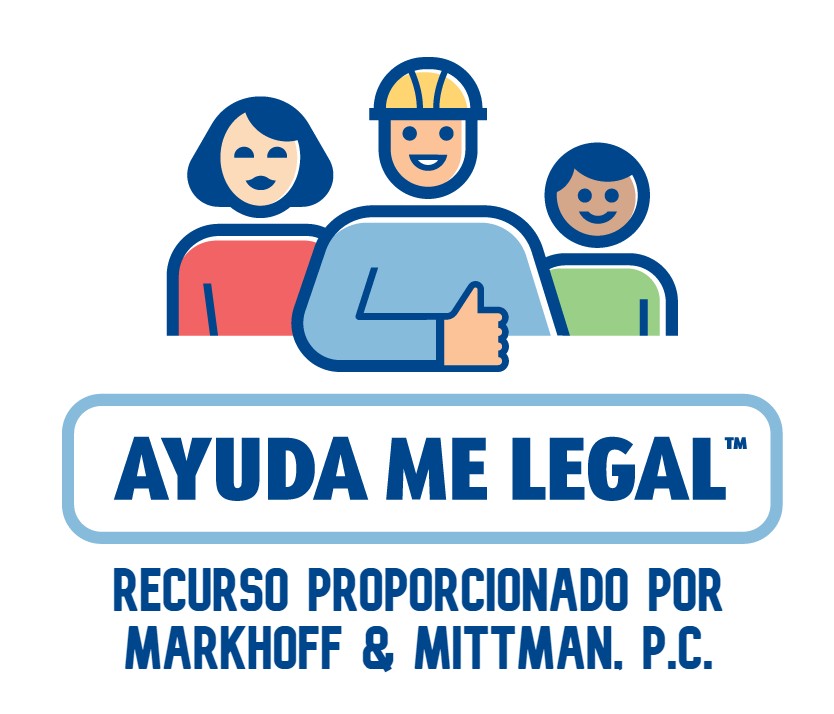New York City Citizenship & Naturalization Lawyer
The law firm of Markhoff & Mittman, P.C. has been assisting clients seeking citizenship and permanent residency in the United States for years. Our New York citizenship and naturalization lawyers have handled cases for people from all over the world, and we understand the unique challenges that each person faces and are here to give legal advice. We have helped clients understand the way to obtain permanent residency, become naturalized citizens, and obtain other immigration benefits.
Our team is committed to staying up to date on all immigration laws and information to better help our client’s case by addressing all obstacles ahead of time. Call for a free consultation to learn how we can help you gain U.S. citizenship. The staff at our NY offices strive for excellence as we offer legal support to guide applicants from many different countries in obtaining permanent residency through the naturalization application.
What’s the Difference Between Citizenship and Naturalization?
Citizenship and naturalization are two terms used interchangeably in everyday life. However, these two concepts actually mean quite different things.
- Citizenship is the right granted to an individual by virtue of birth, meaning their parents were citizens of the U.S. This means that citizenship is automatic and does not depend on any action taken by the person concerned. Nothing is required for automatic citizenship.
- Naturalization is the act of becoming a citizen of another country. It involves taking certain steps to become a citizen of that country based on eligibility. Each situation is different and the help of an experienced immigration attorney can affect how smoothly the process goes.
Who is Eligible for a Certificate of Citizenship?
Anyone under eighteen that was born outside of the U.S. with a parent who is a US citizen may be eligible for a Certificate of Citizenship. If your parent was a US citizen by birth or adoption and you were born outside of the country, you may be eligible for US citizenship by acquisition. If your foreign-born parent naturalized as a US citizen before you became eighteen, you may inherit US citizenship. The Certificate of Citizenship is a crucial record that provides irrefutable evidence of your US citizenship. Our immigration attorneys are familiar with the Certificate of Citizenship application procedure and can assist you in obtaining this document.
Children born to US citizens outside of the US receive a Consular Report of Birth Abroad that shows US citizenship. They can submit an application with the necessary supporting documentation to the US Department of State, especially the embassy or consulate in the nation of your child’s birth, in order to get a Consular Report of Birth Abroad. An immigration lawyer can assist with this process.
What is Naturalization?
There are two types of naturalization:
Permanent Naturalization
- Permanent naturalization occurs when a foreign national becomes a citizen of a country permanently.
- Permanent naturalization is usually done after living in a country for five years. However, it may be possible to apply for permanent naturalization after living in a country longer than five years.
Temporary Naturalization
- Temporary naturalization refers to the acquisition of citizenship status by a foreigner who has been residing in a country for a specified amount of time.
- Temporary naturalization is usually done within a specific time frame. For example, a foreign national may have the opportunity to apply for temporary naturalization after spending a minimum of one year in a country.
In addition to these two types of naturalization, there is also a third form of naturalization known as conditional naturalization. Conditional naturalization is based on the condition that the applicant fulfills certain requirements.
- Conditional naturalization is often used to grant citizenship to refugees. Refugees are individuals who flee their countries due to war, persecution, political unrest, or similar circumstances. They seek asylum in a different country.
Navigating the Naturalization Process
Naturalization is one of the most exciting things that happens to immigrants once they become citizens of the United States. In addition, becoming a citizen gives you access to certain benefits such as healthcare, education, and employment.
However, the process of becoming a U.S. citizen can be complicated and confusing. It is important that you consult with an immigration lawyer from a reputable law firm so you can avoid any problems during the naturalization process. An experienced immigration lawyer can help you determine which type of naturalization you are eligible for and can help you prepare for your naturalization interview. Furthermore, they understand the instructions given by the government to ensure each applicant follows the application process.
The naturalization process includes the following steps:
Step 1: Citizenship Application
Before applying for citizenship, you will first need to apply for a green card. This means that you will be allowed to live and work legally in the United States.
There are two types of green cards: permanent residence and temporary status. Permanent residents may eventually qualify for citizenship after living here for five years. Temporary residents cannot apply for citizenship until they have been in the country for three years.
Complete and sign all paperwork, including Form N-400, found on the USCIS site. It is then necessary to provide supporting documents and all required evidence requested during the naturalization test.
Step 2: Prepare for the Interview
When you go to your interview, you will need to answer questions regarding your background and personal history. These questions will determine whether you have grounds to apply for citizenship. It is often beneficial to have the counsel of a naturalization lawyer with experience in the state where you are requesting residency. For applicants over 55 or those that have lived in the U.S. for more than 20 years, an attorney may request waivers for them to skip the citizenship test or language requirements. Applicants will need to address the following issues during the review process:
If you were born abroad, you will need to prove that you were under the age of 18 years old when you entered the United States.
If you were married to a U.S. Citizen, you will need to show proof that you were divorced within 90 days of entering the country. This will ensure that the rights of permanent residents whose initial visa was based on marriage or employment won’t be jeopardized by divorce or employment issues.
If you were convicted of a felony, you will need to explain why you did not disclose it on your application. Any prior arrest or criminal convictions may increase the risk of removal or deportation based on immigration law.
If you do not qualify for a waiver, you will also need to answer questions in a citizenship test about your knowledge of the English language and American civics and culture. Many are required to take an oath of allegiance to the USA as well.
Step 3: Pass the USCIS Biometrics Appointment
For the purposes of ensuring each applicant has an upstanding character and the protection of others in the community, you will need to undergo a background check. This involves checking your criminal record, verifying your Social Security number, and determining whether you have any outstanding warrants. You will also be fingerprinted and photographed to encourage your reputation continues as an upstanding citizen.
Step 4: Wait For Approval
After completing the background checks, you will receive approval or denial based on the result of your application. It is important that you do not travel outside of the country during this time of decision. If approved, you will then be eligible to apply for citizenship. Once you complete the naturalization process, you will be considered a “lawful permanent resident.”
Renewal of Residency
Although certain Green Cards, also known as Permanent Resident Cards, have no expiration date, the majority have a 10-year validity period. The card is valid for two years if you have been given conditional permanent residence status. Maintaining the accuracy of your card is crucial. You might find it challenging to demonstrate your status as a permanent resident in the absence of a valid card, which could also hinder your ability to travel or demonstrate your eligibility for employment in the US. Let our immigration lawyers help you stay up to date with your residency status.
Citizenship Legal Assistance
At Markhoff & Mittman, P.C., our New York practice has a team of skilled and experienced citizenship & naturalization attorneys to help you apply for citizenship through naturalization. Our immigration attorneys provide comprehensive representation for immigration and naturalization matters, including permanent resident petitions, applications for employment-based immigrant visas, family-based petitions, nonimmigrant visas, and petitions for asylum. We represent clients from New York and the surrounding areas and help them gather all the necessary documentation and records needed in order to file for naturalization. Our attorneys are dedicated to protecting the rights and interests of each client while building an attorney-client relationship. Our New York law firm proudly offers our services to help clients fulfill their dream of becoming US citizens.






